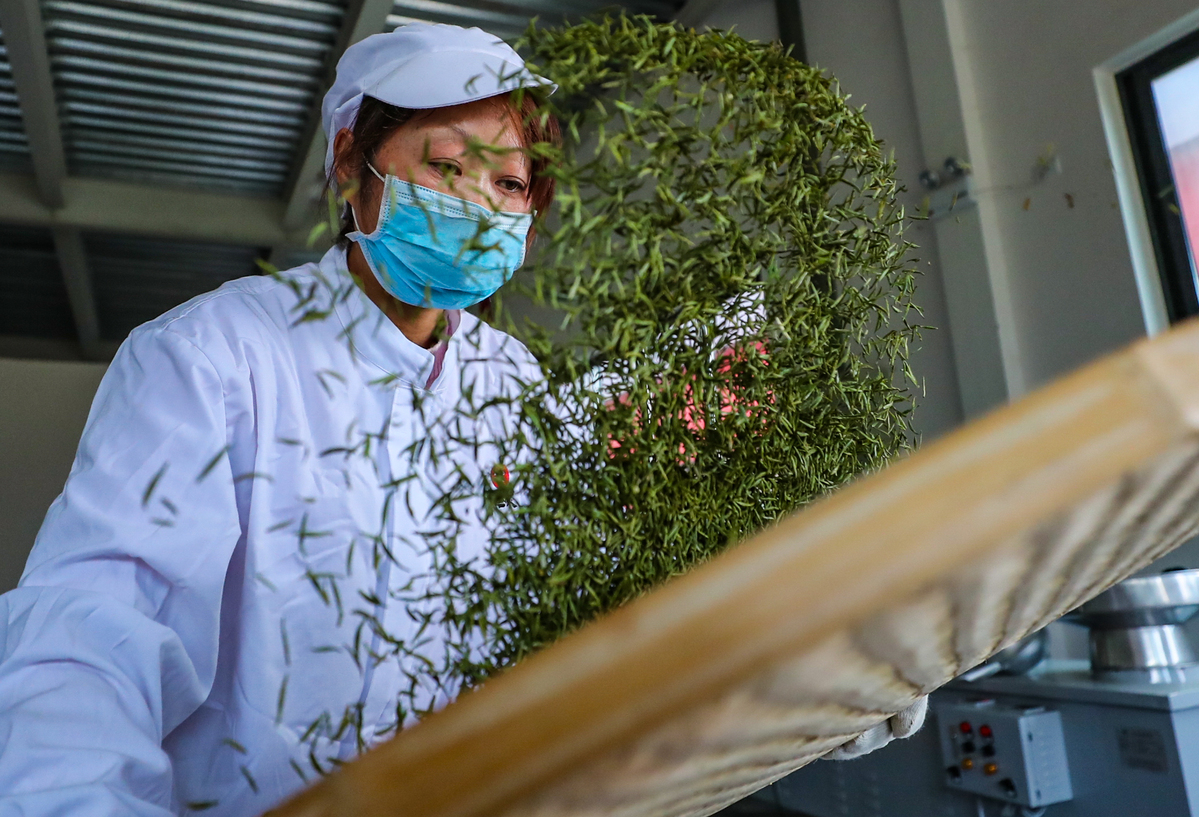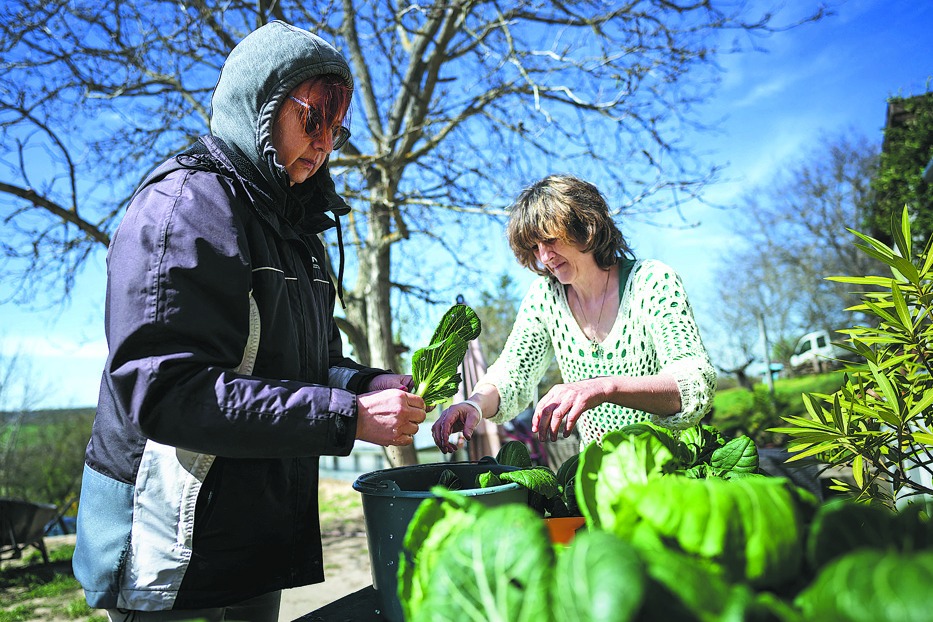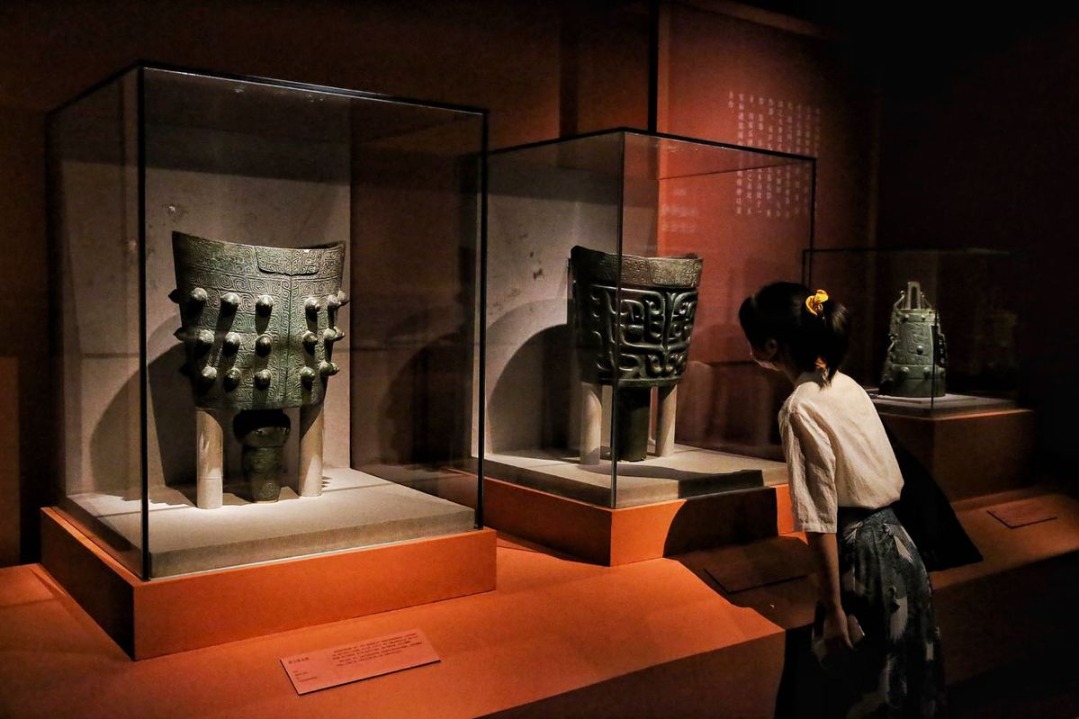Shortage of skilled leaf-pluckers affects tea trade
By MA ZHENHUAN in Hangzhou, WANG ZHUOQIONG in Beijing and YANG JUN in Guiyang | China Daily | Updated: 2020-02-29 09:12

Tea growers in Hangzhou, Zhejiang province, famous for its Longjing tea, are a worried lot these days due to the lack of leaf-pickers.
Jin Weiqiang, a veteran Longjing tea grower in Meijiawu village in Hangzhou, said on Thursday: "The Longjing tea plantation will be ready for picking, as usual, in mid-March and we are still waiting for further notice from the village authorities (concerning the arrangements for tea-pickers)."
Usually, about eight leaf-pickers from nearby Jiangsu, Anhui and Jiangxi provinces are needed for his 3,300 square-meter tea plantation.
Tea picking in the core production area of West Lake Longjing is normally around mid-to late March, but it is difficult to predict the exact time this year, said Jiang Xinbing, an official with the West Lake Scenic Area Administrative Committee.
"There are more than 6,000 tea farmers in the core area, and every year, more than 10,000 tea-pickers will come from outside Hangzhou to collect the tea leaves," said Jiang. "Now we are concerned about how these tea-pickers can leave their home city and come here."
It is hard to find replacements.
"The tea-pickers are experienced and skilled, have been doing this for many years and are familiar with the tea fields here," he said.
Tea growers have constantly tracked the ongoing situation. Weng Yongxiang, Party secretary of Wengjia village in Longyou county, said tea farmers in his village had contacted their tea-pickers in advance to learn about their local epidemic-control situation.
About 66.7 hectares of land and 300 farming households are involved in tea cultivation in Wengjia village. Each year, about 1,600 tea workers are needed, most of whom are from nearby counties and Shangrao in Jiangxi province, Weng said.
"Tea farmers are anxious," he said. "The amount of tea leaves picked has a direct impact on the income of each household for the whole year.
"However, the epidemic prevention and control is still our most important task. Only after the epidemic is brought under control can we look into matters like tea-picking."
Sales during the spring season account for half of the tea marketing for the whole year in China, making it the most significant period for the tea industry. Mei Yu, secretary-general of the China Tea Marketing Association, was quoted by the Economic Daily on Feb 25 that due to the impact of coronavirus outbreak on the country, tea-pickers, especially migrant workers, are expected to be in severe shortage.
Alleviating the impact of the epidemic on the tea industry is critical to poverty-reduction efforts, since the tea industry is a key driver of poverty-alleviation efforts in many places in the country, with nearly 227 out of 832 national-level poverty-stricken counties involved in the tea production.
In nearly 30 percent of poverty-stricken counties, the tea industry is the core source of income for local farmers, said Mei.
Meanwhile, tea marketing and trade, which often take place at tea malls and markets, are yet to be affected by the outbreak, he said. Currently, most of the tea markets are not open to trade yet. The association has launched an online platform for local governments to recommend leading tea enterprises and farmers to trade and get deals done.
"Our estimate is that the cost of production will rise," Mei said. He said the supply of medium-range tea is expected to grow with a fair price, but the supply of high-end teas may drop, leading to an increase in prices. He urged the government to roll out more subsidies and measures to stimulate tea consumption.
In Guizhou province, which has the country's largest tea plantation area, epidemic prevention and control measures have been adopted in the tea production areas, to mitigate the impact of the virus on spring tea production.
According to Lei Ruiyong, head of agriculture and economy station, Department of Agriculture and Rural Affairs in Guizhou province, large-scale tea-picking is expected to kick off by mid-to end-March, with most of the tea growers expected to have started work by the end of this month.
By Monday, 442 leading tea companies in Guizhou had resumed production, accounting for 86.3 percent of the total tea producers in the province.
Lei said due to the epidemic, the cost of production will rise and prices are expected to surge. Last year, tea production in Guizhou province in Southwest China had reached 401,000 metric tons with revenue of 45.1 billion yuan ($6.41 billion).
Most of the respondents in a survey conducted among 622 tea growing and trading companies, accounting for 10.9 percent of the total tea companies in Guizhou, said liquidity crunch, transportation difficulties after the Spring Festival holiday, lower market demand, shortage of prevention materials, rising production costs, and disruption of supply chains were the main factors preventing them from resuming work on time.
The province has made preparations for the challenges by delaying the tea-picking date, adopting more machines to pick tea and increasing communications with recruiters of tea-pickers to make sure they return to work once the epidemic is under control.
Sanitation work is what keeps production safe for tea growers who have already started to collect spring tea.
Wang Yonghong, general manager of Shuicheng County Tea Development Co Ltd, said having started work on Feb 6, they have sanitized processing factories and ensured isolation of workers who have been in contact with people from other provinces or those with high-temperatures.
Wearing masks, checking body temperature twice a day and ensuring local tea-pickers use sanitizers and are two meters away from each other, these are some of the steps being undertaken, Wang said. "We have started picking tea at lower-altitude planation areas, with about 300 workers a day," said Wang. "But the shortage of labor will emerge soon when large-scale picking begins."
"Tea traders should have started procuring tea by now. But this year more trade will move online due to limited flow of workers," said Lei.
Jin Xun, chairman of Guizhou Meitanlanxin Tea Co Ltd, said they have been working on marketing innovations to offset the negative impact.
"E-commerce is certainly our priority this year," said Jin, expecting to raise their online sales percentage from last year's 15 percent to more than 20 percent this year.
"We are inviting e-commerce experts in Hangzhou city to train nearly 100 tea enterprises in Guizhou province on online marketing skills, including how to open online stores and how to lay out products to make them look more appealing," said Jin.
Dong Xianwu in Guiyang contributed to this story.






















